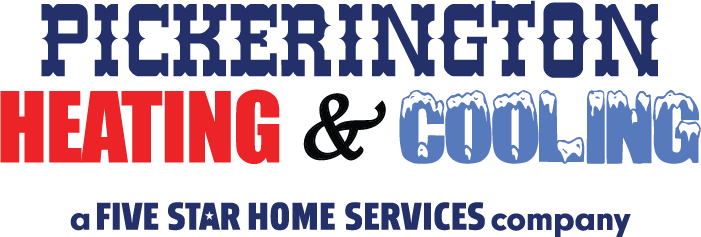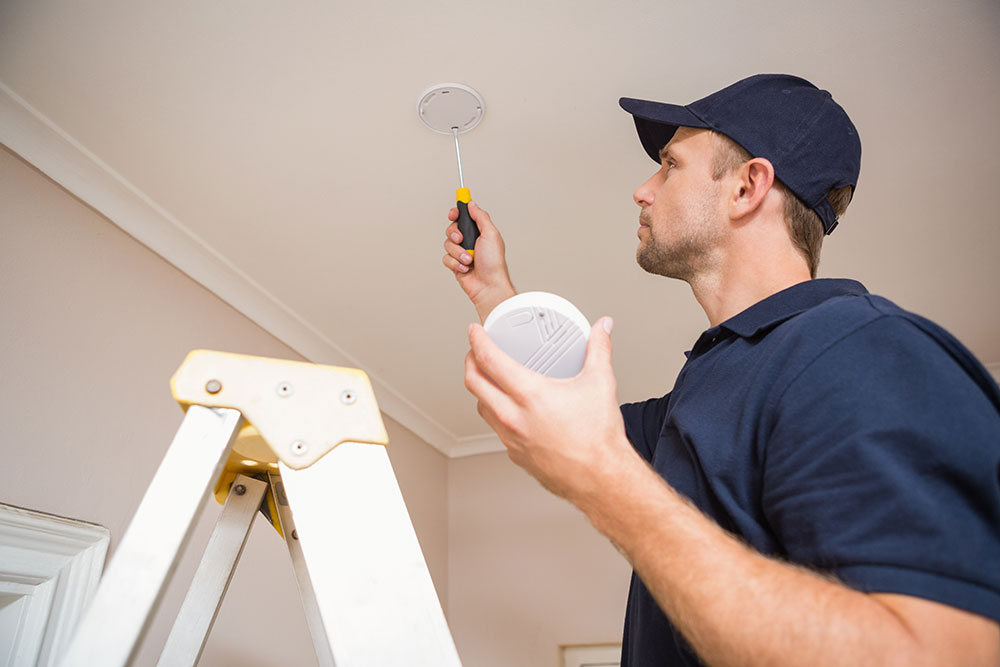The temperatures are dropping, which means you’re probably firing up the furnace for the first time of the season. It’s time to be vigilant against carbon monoxide leaks from your home’s furnace.
According to the Centers for Disease Control (CDC):
Carbon monoxide, or “CO,” is an odorless, colorless gas that can kill you. CO is found in fumes produced any time you burn fuel in cars or trucks, small engines, stoves, lanterns, grills, fireplaces, gas ranges, or furnaces. CO can build up indoors and poison people and animals who breathe it.
While it’s rare for household appliances such as furnaces, boilers, and water heaters to leak carbon monoxide (especially with most modern equipment) anytime you burn fuel, CO leaks are a distinct possibility.
Because it’s odorless and tasteless, it’s impossible to know if your HVAC equipment is giving off CO without a carbon monoxide detector. Many people don’t realize they have a leak until they start to experience symptoms of CO poisoning.
Do Your Detective Work
The whole concept of CO poisoning is pretty scary, but fortunately there is any easy, inexpensive fix: a carbon monoxide detector. They are easy to buy and install, and worth every penny.
CO detectors work in similar fashion to smoke detectors, with the ability to alert anyone in your home any time there is even the smallest leak. CO detectors can save lives, especially if leaks are happening when everyone is asleep at night.
When shopping for a carbon monoxide detector, choose one that plugs into a wall plug and also has a battery for backup (just like a good smoke detector). Best practice is to install one on each floor of your home, and include one in the area around your furnace.
Please note that carbon monoxide alarms should not be installed lower on the wall because carbon monoxide is heavier than air. Carbon monoxide is actually lighter than air and diffuses evenly throughout the room. Some people install their CO detector low on the wall to be near an outlet.
A better solution is to install combination smoke and CO detectors that are hardwired into your home and backed up by batteries.
Just like smoke detectors, check batteries at least twice per year. A good guideline is to test the unit and change out the batteries when you change your clocks for daylight savings time.
What Are the Risks with CO?
Since CO detectors are not as prevalent as smoke alarms, it’s possible to be exposed to dangerous levels of carbon monoxide in other environments, like a hotel or when staying at someone else’s house. It’s absolutely essential that you are familiar with symptoms of CO poisoning and exactly what to do if you suspect it.
According to the CDC:
The most common symptoms of CO poisoning are headache, dizziness, weakness, upset stomach, vomiting, chest pain, and confusion. CO symptoms are often described as “flu-like.” If you breathe in a lot of CO it can make you pass out or kill you. People who are sleeping or drunk can die from CO poisoning before they have symptoms.
If you suspect you are in an unsafe CO environment, the best course of action is to simply get out. The sooner you’re outside in fresh air the better. If you experience a medical emergency, by all means call 9-1-1. If you want assistance finding the source of a carbon monoxide leak, it’s best to call a qualified, licensed HVAC contractor. Either way, the structure affected by the CO must be ventilated before it’s safe to return.
How to Prevent Carbon Monoxide Leaks
You can prevent CO leaks with proper semi-annual maintenance performed on your equipment. A typical carbon monoxide leak might be caused by a hairline crack in your furnace’s heat exchanger, which can be repaired inexpensively and safely.
To keep your family safe from the dangers of carbon monoxide poisoning, the best defense is a good offense. Start by scheduling a pre-season furnace tune-up and safety check to have one of our highly trained and qualified HVAC technicians verify the safety of your equipment.
Better yet, enroll in our Scheduled Maintenance Agreement program to ensure your maintenance work is performed in a timely fashion. You’ll also get additional cost savings, and front of the line service.
We look forward to helping you protect your family’s safety. Call 614-837-4026 for same day service or book an appointment online.




